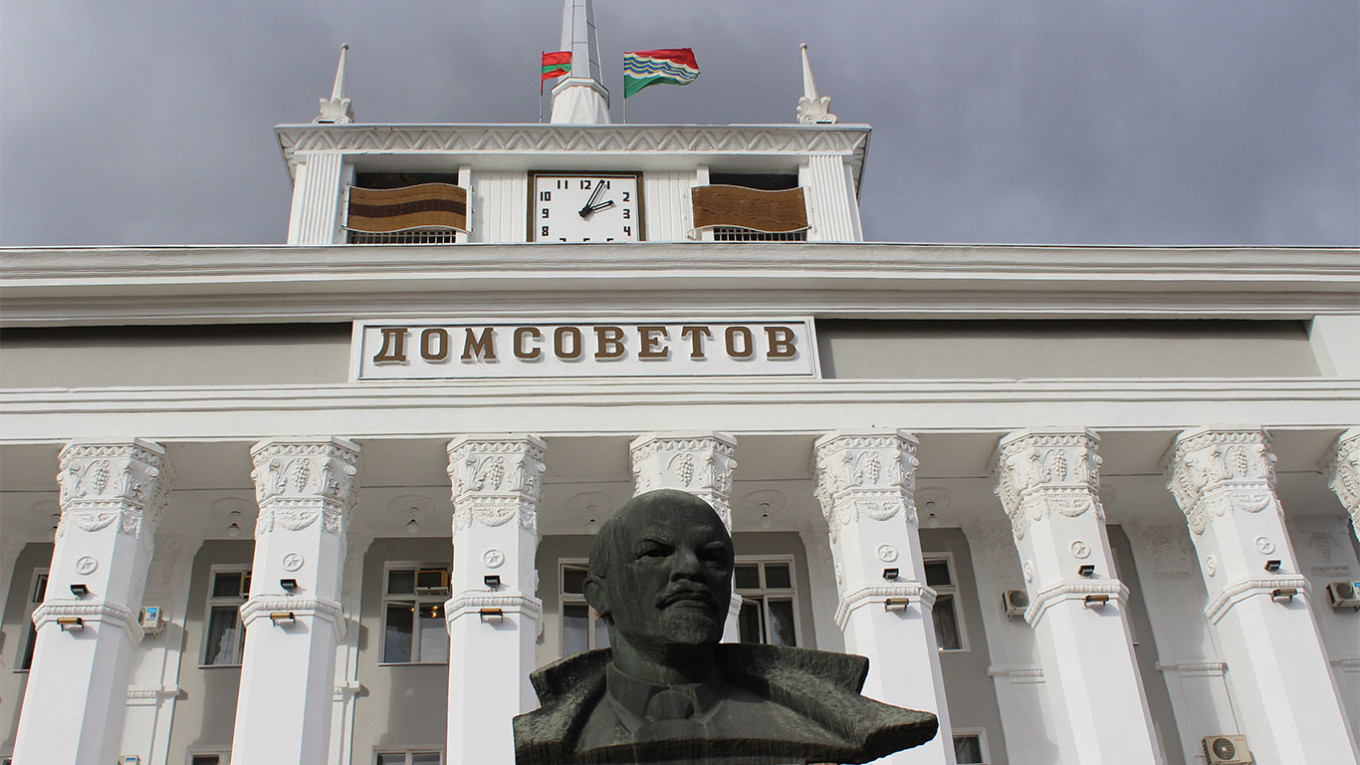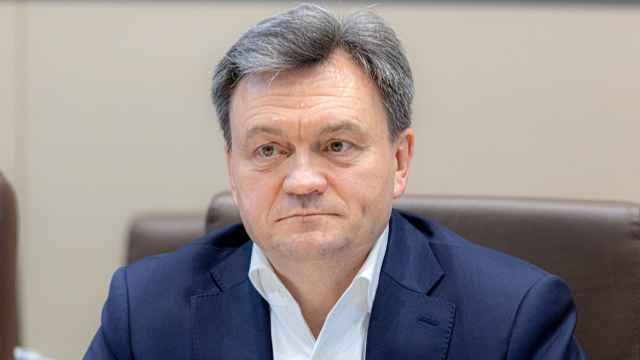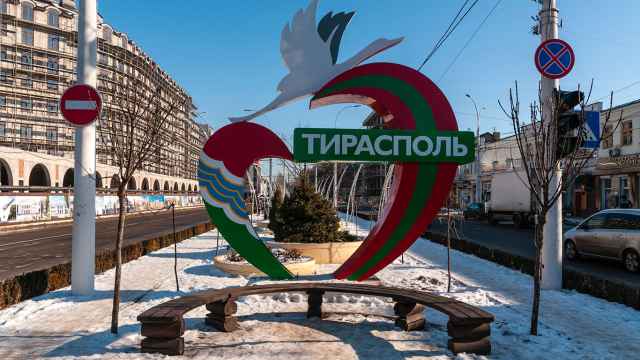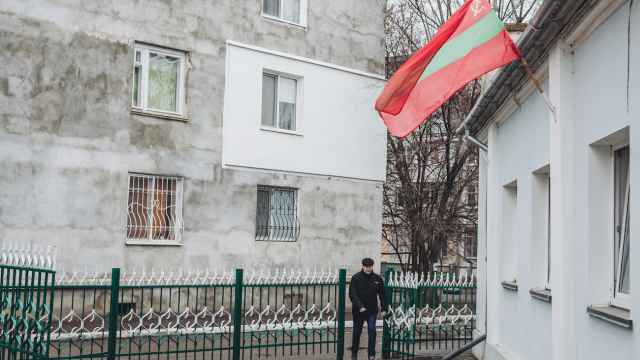Recast with appeal for help.
Pro-Russian rebels in Moldova's breakaway region of Transnistria appealed to Russia for "protection" on Wednesday amid fears the territory could open a new flashpoint in Moscow's war with neighboring Ukraine.
The thin strip of land has been de facto controlled by pro-Russian forces since the collapse of the Soviet Union but is internationally recognized as part of Moldova.
At a special congress in the region — only the seventh in its history — lawmakers passed a resolution asking Russia's parliament to "protect" Transnistria against mounting from Moldova.
They claim that the Moldovan government in Chisinau unleashed an "economic war" against Transnistria, blocking vital imports with the aim of turning it into a "ghetto."
"The decisions of the current congress cannot be ignored by the international community," the breakaway republic's foreign policy chief Vitaly Ignatiev said at the meeting.
Transnistria resolution comes just a day before President Vladimir Putin is set to make an annual address to the Russian parliament.
Likewise, the call for help from Moscow has fueled comparisons with February 2022, when Russian-backed militants in eastern Ukraine called for protection against what they said were relentless attacks and shelling by Ukrainian forces.
Delegates at the conference on Wednesday made little mention of Ukraine, according to accounts of the session in state-run media, instead aiming their ire at Moldova.
A Moldovan government spokesperson downplayed concerns ahead of the rare meeting.
"From Chisinau, things look calm... There is no danger of escalation and destabilization of the situation in the Transnistrian region. This is another campaign to create hysteria," the spokesperson said in a post on Telegram.
Years of tension
Since Moscow launched its full-scale invasion of Ukraine, Moldova has worried that the Kremlin could use Transnistria to open a new front in the southwest, near the southern Ukrainian region of Odesa.
Transnistria was rocked by unexplained blasts in 2022, with military analysts speculating that it may have been an attempt by pro-Russian elements to drag the region into the conflict.
In March, Transnistria's pro-Russian leadership accused Kyiv of an assassination attempt on their leader, an accusation that Ukraine rejected.
And last week, Russia's Defense Ministry claimed that Ukraine planned an armed incursion into the breakaway territory, without providing any evidence.
The Kremlin has around 1,500 soldiers permanently stationed in the breakaway region, what it calls a "peacekeeping" mission.
The predominantly Russian-speaking territory, wedged between the Dniester River and the Ukraine border, unilaterally seceded from Moldova following the collapse of the Soviet Union.
In 1992, separatists fought a war with Moldova's pro-Western government that resulted in hundreds of deaths and the intervention of the Russian army on the rebel side.
Russia still props up Transnistria's economy with supplies of free gas, but the region has found itself increasingly isolated from Moscow since the conflict in Ukraine.
A Message from The Moscow Times:
Dear readers,
We are facing unprecedented challenges. Russia's Prosecutor General's Office has designated The Moscow Times as an "undesirable" organization, criminalizing our work and putting our staff at risk of prosecution. This follows our earlier unjust labeling as a "foreign agent."
These actions are direct attempts to silence independent journalism in Russia. The authorities claim our work "discredits the decisions of the Russian leadership." We see things differently: we strive to provide accurate, unbiased reporting on Russia.
We, the journalists of The Moscow Times, refuse to be silenced. But to continue our work, we need your help.
Your support, no matter how small, makes a world of difference. If you can, please support us monthly starting from just $2. It's quick to set up, and every contribution makes a significant impact.
By supporting The Moscow Times, you're defending open, independent journalism in the face of repression. Thank you for standing with us.
Remind me later.






